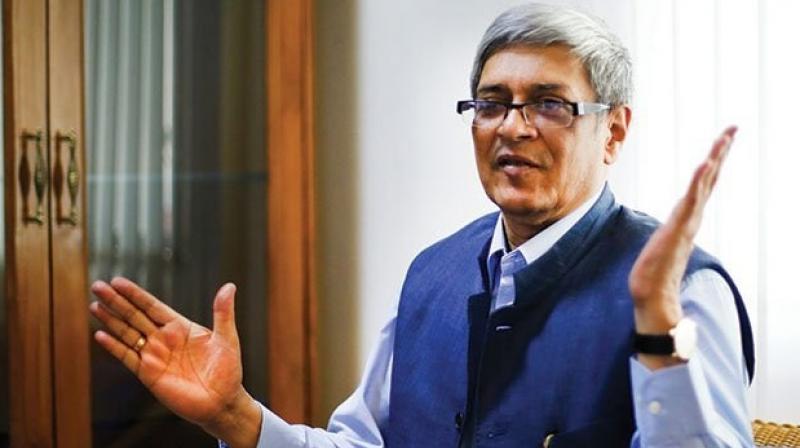Can't end corruption overnight but process is on: Debroy
Bibek Debroy made the remarks while talking to PTI about a new book, 'On the Trail of the Black: Tracking Corruption'.

New Delhi: Eliminating corruption and weeding out black money from the economy will not happen overnight but the process for this purpose has begun, Bibek Debroy, the Chairman of the Economic Advisory Council to the Prime Minister, said.
The noted economist and a Niti Aayog member also said that corruption hits relatively the poor more whereas clamping down on it would would impact the rich.
Debroy made the remarks while talking to PTI about a new book, 'On the Trail of the Black: Tracking Corruption', that he has edited along with Kishore Arun Desai, an Officer on Special Duty at NITI Aayog with Debroy.
When asked if ending corruption and weeding out black money is possible, Debroy said: "It's happening all the time as we speak."
The government last year on November 8 announced demonetisation of old Rs 500 and Rs 1,000 currency notes to crack down on black money and parallel economy in the system.
"Look at the number of benaami properties that have been seized, the number of searches and seizures, the number of shell companies against whom action has been taken... ," he said.
Debroy, 62, however lamented that individually some citizens find easy way out, like paying bribe to a traffic cop after jumping red light, and then complain about corruption.
He also said that some people, for almost seven decades now, have lived with the "chalta hai" and "nothing will happen" attitude, but were now upset with the government.
"Now that things have started to happen, some people are upset. So I look at it positively, it (corruption and black money) is not a problem that would be solved overnight but I've given you some instances (of the process)," he said.
To a question on recent data leaks about offshore dealings, Debroy said whether the Panama Papers or the Paradise Papers, the government has already announced there will be investigations and probes are underway.
Debroy also cited an "anecdotal" figure to say the ratio between black and white money in Delhi has gone down.
"All of us who live in Delhi, in NCR, are familiar of the proposition that it used to be a 50:50 ratio (black and white money). Obviously after November 8, it has taken a hit. It is purely anecdotal -- but a lot of people who deal in property have told me that the 50:50 ratio has now come down to 20:80 (black to white money). I'm talking about Delhi," he said.
The book 'On the Trail of the Black: Tracking Corruption', published by Rupa Publications and launched on Wednesday, traces the cross-sectoral prevalence of corruption Â- from agriculture and real estate to education and electoral finances Â- in a comprehensive manner giving readers a ringside view of its cumulative and cascading impact on the common citizen.
Sonal Bhadan, Aparajita Gupta, Suprana Jain, Swati Saini, Shashvat Singh, Dhiraj Nayyar, Maninder Kaur Dwivedi, Shambhavi Sharan, Bhavana Kohli, Anna Roy, Ritika Aghi, Kheya Melo Furtado, Sneha Palit, Alok Kumar Dubey, T V Somnathan and Ranveer Nagaich have contributed to the book.
They have suggested concrete steps to uproot corruption and examine issues using consistent, fact-based, diagnostic and analytical approach.
Debroy said the planning for the book began almost a month after the landmark note ban announcement and the process took around six months.
"A lot of the commentary (on Demonetisation) has been in the nature of caricature because critics have often tended to suggest that 8th of November was the answer to everything under the sun. The government never stated that," he said.

